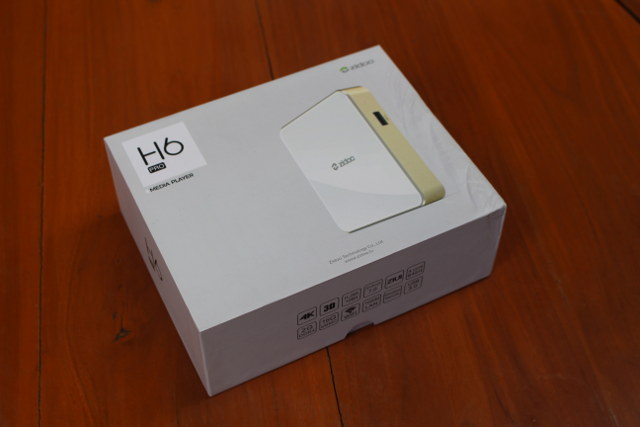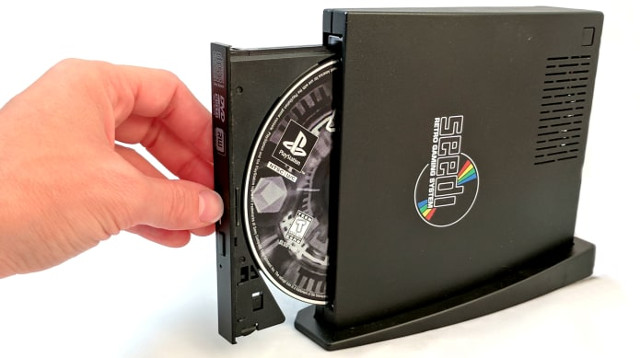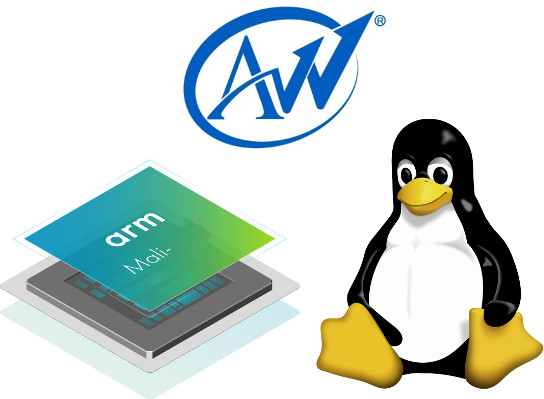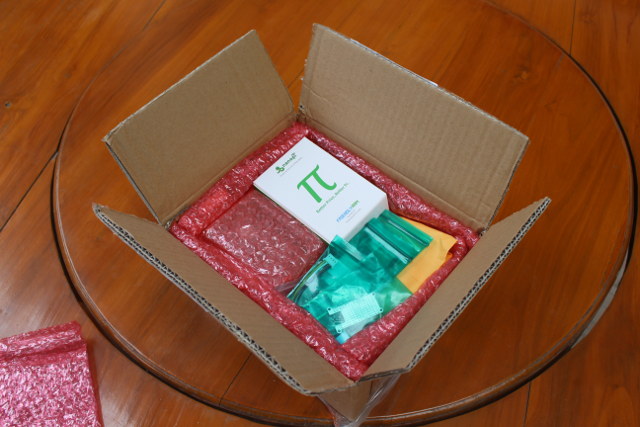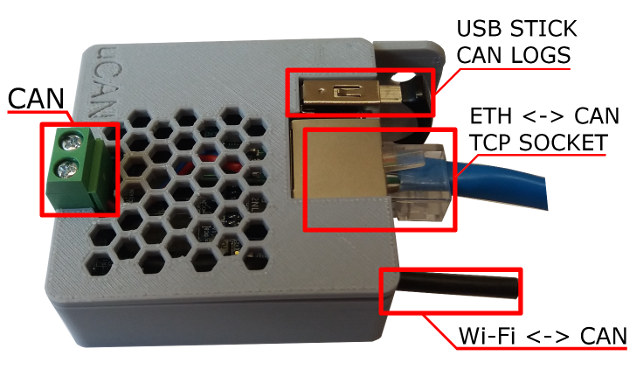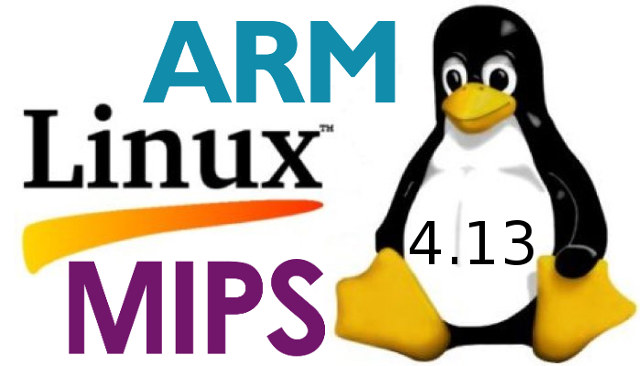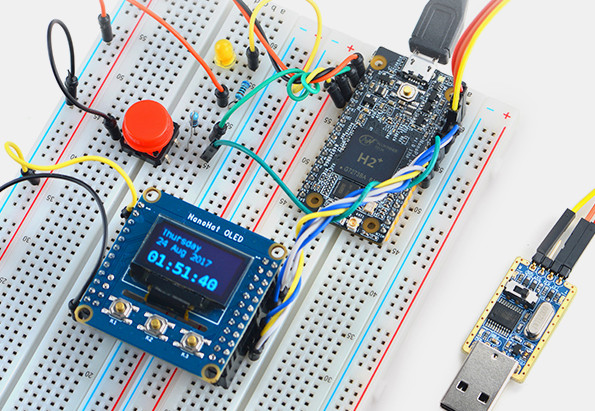Allwinner H6 is a quad core Cortex A53 processor designed for 4K HDR set-top boxes and TV boxes that also comes with high speed interfaces like USB 3.0 and PCIe. While at least one other company is working on an Allwinner H6 development board, Zidoo is the only company that I can find whose made a TV box based on the processor: Zidoo H6 Pro. They’ve just send me a sample from their local supplier for review, and as usual, I’ll start by checking out the hardware inside out, before testing the firmware and multimedia capabilities in the second part of the review in a few weeks. Zidoo H6 Pro Unboxing The company has slightly changed the design of their retail package. It also shows some icons with the main features like 4K, 3D, H.265, 2GB DDR4, Android 7.0 with ZIUI, etc… The box ships with a HDMI cable, a […]
OpenBSD 6.2 Adds Support for Orange Pi PC 2, Firefly-RK3399
OpenBSD has been supporting 32-bit (ARMv7) and 64-bit (ARM64) ARM targets, but the just released OpenBSD 6.2 adds support for two more ARM64 boards: Orange Pi PC 2 and Firefly-RK3399. Those two add to the ARM64 list comprised of Raspberry Pi 3, Pine A64/A64+, and AMD Opteron A1100 based development board and SoftIron OverDrive 1000 servers. Other platforms based on Allwinner A64 & H5, and Rockchip RK3399 could likely also be supported. If you want to try it on your board, visit OpenBSD 6.2 ARM64 page to download the files: INSTALL.arm64 – Installation notes SHA256 – Output of the cksum(1) program using the option -a sha256, usable for verification of the correctness of downloaded files. SHA256.sig – The above file, signed with the OpenBSD signing key for the 6.2 release, usable for verification of the integrity of the above file, and thus of the downloaded files. miniroot62.fs – A miniroot […]
Orange Pi Lite Based Seedi Retro Gaming Console Takes Your Old DVDs or CD-ROMs (Crowdfunding)
Shenzhen Xunlong’s Orange Pi family is a nice collection of low costs ARM Linux development boards that can be used in all sort of projects, just like Raspberry Pi boards, but cheaper at the cost of requiring more skills, and/or efforts to complete a project. One popular use for Orange Pi boards is retro gaming thanks to community supported images like RetrOrange Pi supporting games for Atari, Amiga, DreamCast, and other consoles. The implementation looks good enough for startups to sell their own products based on Orange Pi hardware and RetrOrangePi software, as we’ve already seen with RetroEngine Sigma Retro Game Console which had a very successful Indiegogo campaign with $629,368 USD raised. “Seedi Team” has now launched their own game console apparently based on Orange Pi Lite, but it’s a little different as instead of copying “ROMs” , you can simply insert your old CD-ROMs or DVDs. Seedi game […]
Allwinner SoCs with Mali GPU Get Mainline Linux OpenGL ES Support
OpenGL ES support in Linux for ARM SoC is usually pretty hard to get because of closed source binary blobs coupled with the manufacturers focus on Android. Workarounds include open driver projects such as Freedreno for Qualcomm Adreno GPU, Nouveau for Tegra, or Etnaviv for Vivante GPUs, as well as libhybris library that converts Linux calls into Android calls in order to leverage existing Android GPU binary blobs. Allwinner processors relies on either PoverVR or ARM Mali GPU, and the former does not have any open source project, while some work is still being going for the latter with Lima project, but it’s not ready yet. That means so far, you’re only option was to use libhybris for either GPU family. The good news is that Free Electrons engineers have been working on OpenGL ES support for ARM Mali GPU for Allwinner processor, and have been allowed to release the […]
NanoPi Duo Starter Kit Review – Part 1: Unboxing and Assembly
NanoPi Duo is an inexpensive Allwinner H2+ quad core board with 256MB or 512MB RAM that can fit into a breadboard, and FriendELEC also provides a starter kit with a carrier board, heatsink, enclosure, USB debug board and cable, as well as optional accessories such as an half-length SSD drive. The company sent me two kits for review, so I’ll first check out what I got, and show how to assemble the kit, before actually playing with the board and kit next month. NanoPi Duo Starter Kit Unboxing I got a bunch of boxes and bubble wraps in the package… … and indeed received two identical kits. Each kit comes with a NanoPi Duo board with soldered headers, a mini Shield for NanoPi Duo, a heatsink and thermal pad set, a micro USB to USB cable, a USB to TTL debug board and cable, and acrylic case, and user manuals […]
uCAN CAN Ethernet Converter and Logger is Based on Orange Pi Zero Board
The CAN bus is a serial communication protocol used in automotive and automation applications. The guys at ucandevices.pl have designed a solution around Orange Pi Zero board that allows you to log CAN bus data or act as a bridge between the CAN bus and Ethernet or WiFi. They call it “CAN Ethernet converter, CAN Logger, Linux CAN computer”. Sorry, no shorter name that I could find… uCAN (pronounced micro CAN) CAN Bus board specifications: Main Board – Orange Pi Zero with Allwinner H2+ quad core cortex-A7 processor, 256 MB RAM Network Connectivity – 10/100M Ethernet, 802.11 b/g/n WiFi Can Bus – 2-pin terminal block; support for CAN version 2.0 support Power Supply – DC 5V/2A via micro USB port Dimension – 50 x 50 x 20 mm The device comes pre-load with Debian distribution provided by Armbian plus various CAN tools. The getting started video below shows uCANTools web […]
Linux 4.13 Release – Main Changes, ARM & MIPS Architectures
Linus Torvalds has just announced the release of Linux 4.13 and a kidney stone…: So last week was actually somewhat eventful, but not enough to push me to delay 4.13. Most of the changes since rc7 are actually networking fixes, the bulk of them to various drivers. With apologies to the authors of said patches, they don’t look all that interesting (which is definitely exactly what you want just before a release). Details in the appended shortlog. Note that the shortlog below is obviously only since rc7 – the _full_4.13 log is much too big to post and nobody sane would read it. So if you’re interested in all the rest of it, get the git tree and limit the logs to the files you are interested in if you crave details. No, the excitement was largely in the mmu notification layer, where we had a fairly last-minute regression and […]
$8 NanoPi Duo is a Tiny Breadboard Compatible Linux Board powered by Allwinner H2+ Quad Core SoC
It’s very easy to find breadboard compatible boards in the market with products based on Espressif chips such as NodeMCU or ESP32 boards, as well as OpenWrt board like Onion Omega2, or LinktIt 7688. However, it’s much more difficult to find powerful quad core boards in this form factor, but that’s exactly what FriendlyELEC has done with their NanoPi Duo board featuring an Allwinner H2+ quad core processor in a form factor slightly smaller than a Raspberry Pi Zero. NanoPi Duo specifications: SoC – Allwinner H2+ quad core Cortex A7 processor @ 1.2 GHz with Mali-400MP2 GPU @ 600 MHz System Memory – 256 or 512 MB DDR3-1866 SDRAM Storage – micro SD card slot, footprint for SPI flash Connectivity – 802.11 b/g/n WiFi (Allwinner XR819 module) with chip antenna, and u.FL/IPEX connector for external antenna USB – 1x micro USB OTG port Expansion headers – 2x 16-pin breadboard compatible […]


